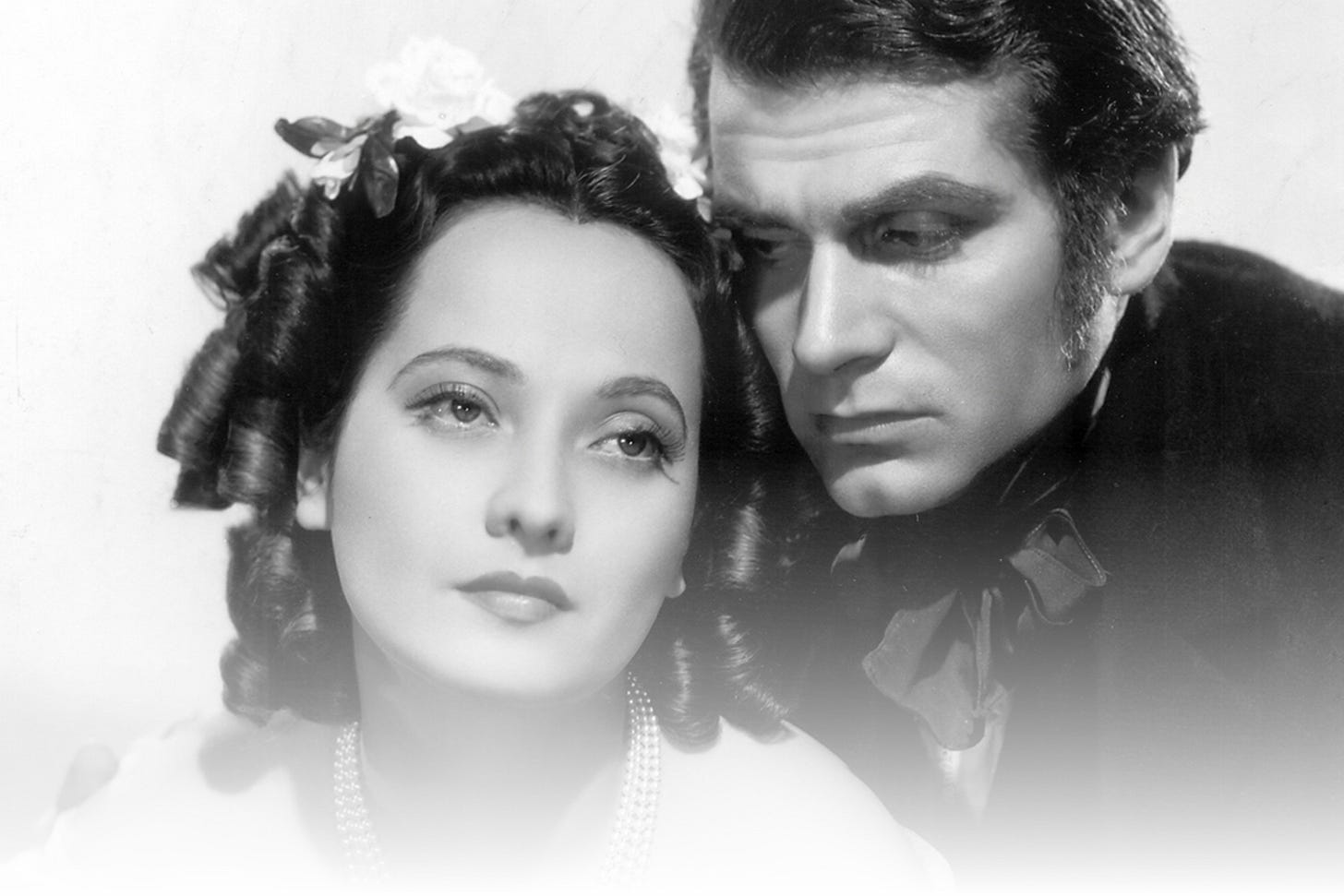The Story of Merle Oberon, the First Asian Best Actress Nominee
On Tuesday morning, Michelle Yeoh scored a long-expected Oscar nomination for Everything Everywhere All at Once.
Several news outlets (and gays with “he/they” in their Twitter bios) crowed that she was the first Asian performer up for this award. Naturally, pedants like me put them in their place. What about Merle Oberon? Indian girl, whose nephew wrote that awful novel? Remembered today for 1939’s Wuthering Heights, although her nomination came for The Dark Angel four years earlier. Never ones to admit defeat, Ms. Yeoh’s fans qualified themselves with typical doublespeak. She was the first Asian-identifying actress.
Merle Oberon has always fascinated me. Enigmatic and mysterious. A study in self-preservation and the lengths one will go to avoid prejudice. Not unlike her contemporary, the ‘Viennese teardrop’, Luise Rainer (she really was German, but pretended to be Austrian for obvious reasons). Or Vivien Leigh who, while making no bones about growing up in the Raj, adopted cleancut French and Irish ancestry to dovetail with Scarlett O’Hara’s. In that pre-internet age, it was possible to keep stars’ pasts a secret – but xenophobic attitudes often caught up with them.
Her nephew was Michael Korda, scion of the Hungarian moguls, who, in fact, wrote two books. The first, Charmed Lives, kept mum about his erstwhile aunt’s origins (she threatened legal action) while the second, Queenie, was a fictionalised account of them. For Merle Oberon, supposedly the daughter of English planters in Australia, was born ‘Estelle Merle O’Brien Thompson’ in 1911 to mixed-race parents in Calcutta.
It was a reinvention worthy of George Santos and the story gets sadder still. Her “mother” was really her grandmother. Her biological mother gave birth at the age of twelve and was raised as her sister. (Oberon later passed the older lady off as her dark-skinned maid.) Both were raped by colonists and young Merle was painfully aware of the precarity to which “half-caste” women were condemned. Her background was Sri Lankan with Māori ancestry, but integration into polite society meant one thing. Passing for white.
She rose from shantytown to stardom at the hands of Alexander Korda (it was he who changed “O’Brien”, the name of every Irish-American policeman, he said, to the chic “Oberon”). Yet she alleged she was born in Tasmania to a prosperous family; was taken to Europe by an uncle; and went to finishing school in Paris. In 1942 when her husband was knighted, she became “Lady Korda” – an extraordinary turn of events for someone who spent their formative years in poverty on the Indian subcontinent.
At a time when redhead Myrna Loy was the movies’ idea of exotic, Merle Oberon disguised her features with crude makeup. The oils and chemicals bleached her skin which, coupled with a car accident in 1937, left her permanently disfigured. (For her second husband, she took Lucien Ballard, a cameraman who invented a special light – the Obie – that hid those facial blemishes.) Primarily used as a bargaining chip for Korda’s American ambitions, Oberon starred in few true classics. But the role of Catherine Earnshaw in William Wyler’s Wuthering Heights made her immortal. It remains the best adaptation of Emily Brontë’s novel precisely because it jettisons most of it.
On set, Oberon ran afoul of her Heathcliff, Laurence Olivier, for the crime of not being Vivien Leigh. (Wyler tried to placate Viv with the secondary part of Isabella Linton. “Look, Vivien. You’re not yet known in the States. You may become a big star. But for a first role in an American film, you’ll never do better than Isabella in Wuthering Heights.”) At the Oscars, the film gleaned eight nods – but Oberon was conspicuously absent from the Best Actress category.
It’s been said Hollywood was sceptical of the stories the publicity department was pushing. That Merle’s accent and the shape of her eyes gave her away. She took issue with The Los Angeles Times around the time of her 1935 nomination for provocatively printing she was “Eurasian”. A jeopardous remark given that multi-racial casting was effectively banned under the Hays Code. She went to her grave defending her version of events (even undertaking comical visits to her “native” Hobart), but the truth will out.
No one can blame her. If anything, we acknowledge what it takes to create yourself in a world that won’t accept you. Up until two days ago, only one Asian (but not Asian-identifying!) woman had been nominated for Best Actress. She didn’t win. And frankly I’m not convinced we, as a society, have moved on so much. Reports suggest the skin whitening creams that Ms. Oberon favoured, often laced with mercury, are still popular.
But in Michelle Yeoh, we finally have a nominee – and winner – who can proudly claim their heritage.


